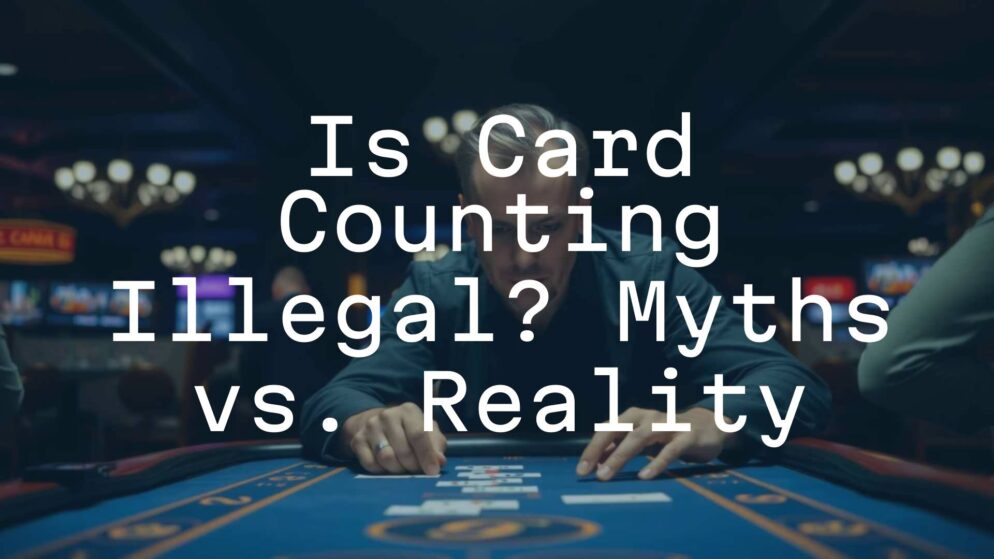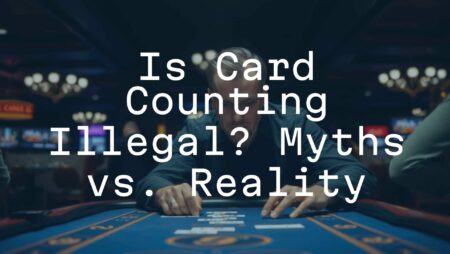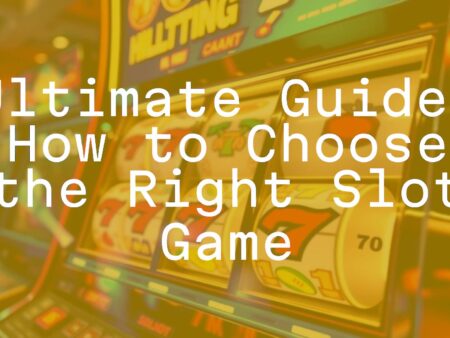

The short answer to whether card counting is illegal is no. Card counting, a method mostly used in blackjack, is not against federal, state, or local law in the United States, and it’s also legal in the United Kingdom. This skill involves tracking high and low cards to get a small edge. It mixes simple math and observation and has interested players and annoyed casinos for years. The act is legal, but the back-and-forth between casinos and counters is far from simple, which leads to myths and dramatic stories in movies.
Even though it’s legal, casinos dislike card counting. They are private businesses and can refuse service. If staff think you are counting, they may ask you to leave or ban you from the property. The difference between what the law allows and what casino policy allows is key to understanding card counting.

Is Card Counting Illegal in Casinos?
This question often causes debate. Movies may show card counters being arrested, but that is not how the law treats it. Card counting, by itself, is a mental strategy used in a game. That kind of mental play is not a crime.
Things change if someone uses gadgets or cheats. If a player uses a device, marks cards, or works with others in a way that breaks cheating laws, then the player can face charges. That is the line between legal skill and illegal conduct, and casinos can call the police when that line is crossed.
Federal and State Gambling Laws on Card Counting
In the United States, federal law regulates casinos but does not ban mental card counting. States set many of their own rules, and in most states, using your memory and brain to track cards is not a crime.
The law treats this as smart play, not cheating. But using any device (like a hidden computer or app), using marked cards, or sending signals as part of a team crosses into illegal cheating. That can lead to arrest and charges.
Is Card Counting Illegal in Las Vegas?
In Nevada, card counting is legal as a mental skill. You won’t be arrested just for keeping a count at a blackjack table in Las Vegas.
But casinos do not have to accept it. As private properties, they protect their profits and make their own rules. They can ask you to stop playing blackjack, remove you from the casino, or ban you, even if you aren’t using any illegal device. They use this right often against advantage players.
Difference Between Casino Rules and the Law
Here’s the key point for new counters: there’s a difference between what the law allows and what a casino permits on its floor. Using your mind to gain an edge in blackjack is legal.
Casinos, however, set rules to keep their built-in edge. They don’t have to allow play that cuts into profits. So you won’t face charges for counting, but you may face casino actions, such as:
- A request to leave the blackjack table
- “Backed off” from blackjack but allowed to play other games
- A full trespass warning or permanent ban
- Your photo shared with other casinos
Can You Get Arrested for Counting Cards?
In most cases, no. Counting with your mind is not a crime. Arrests tied to card counting usually happen when a player cheats by using devices, marking cards, or working with a team in a fraudulent way. Those acts are illegal.
If you only use your memory and attention, the worst likely outcome is removal from the casino. That can be frustrating, but it is not a criminal matter. Media often blurs this line.
Myths vs. Reality: Card Counting in Practice
Card counting gets a lot of attention and is often shown in movies with hype and flashy scenes. These stories create confusion about what counting really is. Let’s clear up common myths and focus on how it works in real play.
Many people think it’s easy money or that casinos can’t fight back. These ideas don’t match how blackjack and casino operations actually work.
Myth 1: Card Counting Is a Crime
This myth is very common. Pop culture often shows counters as lawbreakers. It makes for good drama, but it doesn’t match the law.
Counting, done with observation, memory, and simple math, is not illegal. These are mental skills, not cheating tools. Confusion comes from the fact that casinos dislike counting and act against it, which leads people to think it must be illegal.
Reality: Card Counting and Legal Boundaries
The rule is simple: using your brain is legal. No US federal or state law bans mental card tracking in blackjack. The legal problem starts when a player adds devices or fraud. A hidden computer, a mobile app aiding play, or secret signals with a team crosses into cheating and can lead to charges.
The key point: the law turns against you when methods go beyond normal human observation and memory. If you rely only on your mind, you are within the law, even if the casino tells you to stop playing.
Myth 5: Casinos Can’t Catch Card Counters
Movies often show a lone counter beating the system without getting noticed. That picture is misleading. Casinos spend a lot to protect profits and have many ways to spot and slow down skilled players.
A good counter can avoid attention for a while, but they are not invisible. The back-and-forth between counters and casinos keeps changing, and both sides adjust.
Reality: Detection Methods and Countermeasures
Casinos are very good at spotting patterns linked to counting. They use trained staff and modern tech. Pit bosses and dealers look for signs like bet jumps when the deck is rich in high cards, unusual plays, or strong focus on the discard tray.
They also use surveillance with clear cameras and facial recognition to flag known players. Software reviews betting and play in real time to find patterns. Game tools like frequent shuffles, continuous shuffling machines (CSMs), and multi-deck shoes reduce a counter’s edge. Thinking casinos are easy to beat can lead to quick losses.

How Do Casinos Detect and Respond to Card Counting?
The struggle between counters and casinos never stops. Casinos keep improving how they spot and handle advantage play. Knowing how they respond helps any player who is thinking about counting.
Casinos do not sit back. They change game conditions and may confront players. Their goal is to protect their built-in edge.
Surveillance and Anti-Counting Technologies
Casinos use wide camera coverage that watches tables closely. These systems can zoom in and track behavior. Facial recognition can match players to lists of known counters.
They also use tech aimed at analysis. Examples include:
- Intelligent shoes that read card values as they come out
- Software tools (like Bloodhound or Protec 21) that compare bets and cards to estimate a player’s edge
- RFID chips that auto-track bet sizes
These tools work together to find patterns linked to counting and make quiet, long-term play harder.
Casino Countermeasures Against Card Counters
When a casino suspects counting, it can:
- Lower “penetration” (shuffle sooner) to weaken the count
- Use preferential shuffles when the count favors the player
- Use automatic shufflers (ASMs) or CSMs to break tracking
- Change rules (for example, 6:5 blackjack payouts)
- Block mid-shoe entry
- Force flat betting (same bet each hand)
- Cancel comps tied to blackjack play
These steps make it tough to hold an edge over time.
What Happens If You’re Caught?
First, you get more attention from staff. Pit bosses and security will watch your play. If they think you are counting, they may step in.
Often, a manager will ask you to stop playing blackjack and suggest other games. They may ask you to leave the property. If you are a known counter or a repeat case, you can be banned. Your photo may be shared with other casinos. You won’t be arrested for mental counting alone, but your gambling plans can be disrupted.
Can You Be Banned for Counting Cards?
Yes. Bans are common. Casinos can refuse service if they think a player hurts their games. Counting is seen as cutting into profits, so removal or bans are routine.
A ban may be temporary or permanent and may cover all games or just blackjack. Some casinos share data, which can block you across many properties. One exception is Atlantic City, New Jersey. In 1979 (Ken Uston v. Resorts International Hotel Casino), the state’s high court said casinos there cannot ban a player for skill. Still, they use many countermeasures to reduce any player edge.
Card Counting FAQs: What You Need to Know
People ask many questions about card counting, often shaped by movies and casino stories. Here are clear answers to common points.
We’ll cover legal action, and why casinos push back so hard on counting.
Can Casinos Take Legal Action Against Card Counters?
Casinos usually cannot sue or have you charged just for counting with your mind. It is treated as a mental skill, not cheating. You won’t end up in court for tracking cards in your head.
If you use illegal devices, cheat with others, or steal, that is different. In those cases, casinos can involve law enforcement, and you may face charges and penalties. Mental counting is allowed; tools and fraud are not.
Why Do Casinos Dislike Card Counting If It Isn’t Illegal?
The reason is profits. Casino games are built with a small edge for the house. Effective counting can reduce or even flip that edge, giving the player an advantage.
Casinos sell entertainment where the odds favor them. Counting changes those odds and can harm profits. As private businesses, they act to protect their money, which includes warning, removing, or banning counters.
Legality and Risks: Key Takeaways for Players
Card counting calls for math, focus, and a clear view of the legal rules and the risks. If you plan to try it, learn how the law treats it and how casinos react.
It’s more than learning a system. It’s also about where you use it and what might happen if staff notice. These points help set smart expectations.
Summary of Legal Status Across Jurisdictions
Across most gambling areas, mental card counting is legal. In the US and the UK, laws do not ban tracking cards in your head. Using devices or cheating with others is illegal everywhere and can bring serious penalties.
Legal does not mean casinos accept it. You may still be removed or banned. Atlantic City is different on bans for skill, but casinos there use many tools to reduce any edge.
| Place | Is mental counting illegal? | What casinos can do |
|---|---|---|
| US (federal) | No | Set house rules; remove or ban players |
| US (most states) | No | Same as above; cheating laws apply to devices/teams |
| Nevada (Las Vegas) | No | Back off, trespass, or ban; devices are illegal |
| Atlantic City, NJ | No | Cannot ban for skill; use heavy countermeasures |
| United Kingdom | No | Can refuse service or ban players |

Potential Consequences for Card Counters
While arrest is rare for mental counting, casino actions are common. You may face:
- Back-off from blackjack
- A request to leave the property
- A temporary or permanent ban
- Placement in shared databases across casinos
- Game changes that lower your edge (more shuffles, CSMs, rule changes)
Card counting is legal skill play, but it comes with social and practical costs inside casinos.








